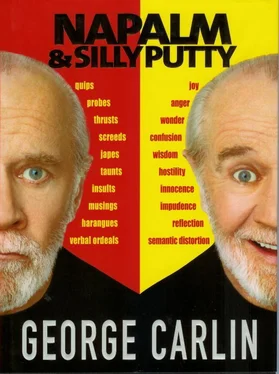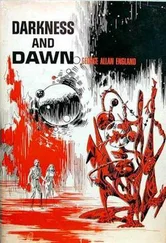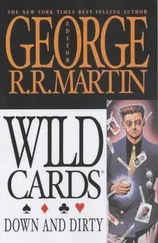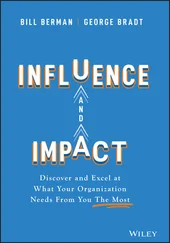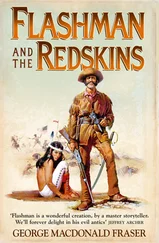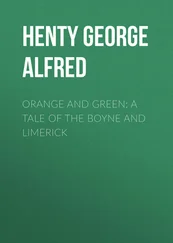Then, barely fifteen years later, we got into Vietnam, and, thanks to the deceptions surrounding that war, it’s no surprise that the very. same condition was referred to as “post-traumatic stress disorder.” Still eight syllables, but we’ve added a hyphen, and the pain is completely buried under jargon: post-traumatic stress disorder. I’ll bet if they had still been calling it “shell shock,” some of those Vietnam veterans might have received the attention they needed.
But it didn’t happen, and one of the reasons is that soft language; the language that takes the life out of life. And somehow it keeps getting worse.
Here are some more examples. At some point in my life, the following changes occurred:
toilet paper = bathroom tissue
sneakers = running shoes
false teeth = dental appliances
medicine = medication
information = directory assistance
the dump = the landfill
motels = motor lodges
house trailers = mobile homes
used cars = previously owned vehicles
room service = guest room dining
riot = civil disorder
strike = job action
zoo = wildlife park
jungle = rain forest.
swamp = wetlands
glasses = prescription eyewear
garage = parking structure
drug addiction = substance abuse
soap opera = daytime drama
gambling joint = gaming resort
prostitute = sex worker
theater = performing arts center
wife beating = domestic violence
constipation = occasional irregularity
Health
When I was a little boy, if I got sick I went to a doctor, who sent me to a hospital to be treated by other doctors. Now I go to a “family practitioner,” who belongs to a “health maintenance organization,” which sends me to a “wellness center” to be treated by “health-care delivery professionals.”
Poverty
Poor people used to live in slums. Now “the economically disadvantaged” occupy “substandard housing” in the “inner cities.” And a lot of them are broke. They don’t have “negative cash flow.” They’re broke! Because many of them were fired. In other words, management wanted to “curtail redundancies in the human resources area,” and so, many workers are no longer “viable members of the workforce.” Smug, greedy, well-fed white people have invented a language to conceal their sins. It’s as simple as that.
Government
The CIA doesn’t kill anybody, they “neutralize” people. Or they “depopulate” an area. The government doesn’t lie, it engages in “disinformation.” The Pentagon actually measures nuclear radiation in something called “sunshine units.” Israeli murderers are called “commandos,” Arab commandos are called “terrorists.” The contra killers were known as “freedom fighters.” Well, if crime fighters fight crime and fire fighters fight fire, what do freedom fighters fight?
Physical Disorders
And some of this softened language is just silly and embarrassing. On the airlines they say they’re going to preboard “passengers in need of special assistance.” Cripples. Simple, honest, direct language. There’s no shame attached to the word “cripple.” No shame. It’s a word used in Bible translations: “Jesus healed the cripples.” It doesn’t take six words to describe that condition.
But we don’t have cripples anymore; instead we have the “physically challenged.” Is that a grotesque enough evasion for you? How about “differently abled?” I’ve actually heard cripples referred to as differently abled. You can’t even call them handicapped anymore. They say, “We’re not handicapped, we’re handi-capable.” These poor suckers have been bullshitted by the system into believing that if you change the name of the condition, somehow you’ll change the condition. Well, it doesn’t happen that way.
I’m sure you’ve noticed we have no deaf people in this country. “Hearing impaired.” And no one’s blind. “Partially sighted” or “visually impaired.” And thank God we no longer have stupid children. Today’s kids all have “learning disabilities.” Or they’re “minimally exceptional.” How would you like to be told that about your child? Actually, it sounds faintly positive.
“He’s minimally exceptional.”
“Oh, thank God for that, I guess.”
Best of all, psychologists now call ugly people “those with severe appearance deficits.” Things are so bad that any day I expect to hear a rape victim referred to as an unwilling sperm recipient.
Gettin’ Old
Of course, it’s been obvious for some time that there are no old people in this country. They all died, and what we have are “senior citizens.” How’s that for a lifeless, typically American, twentieth-century phrase? There’s no pulse in a “senior citizen.”
But that’s a term I’ve come to accept. That’s what old people are going be called. But the phrase I will continue to resist is when they describe an old person as being “ninety years young.” Imagine how sad the fear of aging that is revealed in that phrase. To be unable even to use the word “old”; to have to use its antonym.
And I understand the fear of aging is natural; it’s universal, isn’t it? No one wants to get old, no one wants to die. But we do. We die. And we don’t like that, so we bullshit ourselves.
I started bullshitting myself when I reached my forties. I’d look in the mirror, and say, “Well, I guess I’m getting… ‘older!’” Older sounds better than old, doesn’t it? Sounds like it might even last a little longer. Bullshit. I’m getting old. And it’s okay. But the Baby Boomers can’t handle that, and remember, the boomers invented most of this soft language. So now they’ve come up with a new life phase: “preelderly.” How sad. How relentlessly sad.
Gettin’ Dead
But it’s all right, folks, because thanks to our fear of death, no one has to die; they can all just pass away. Or expire, like a magazine subscription. If it happens in the hospital, it will be called a terminal episode. The insurance company will refer to it as negative patient-care outcome. And if it’s the result of malpractice, they’ll say it was a therapeutic misadventure.
To be honest, some of this language makes me want to vomit. Well, perhaps “vomit” is too strong a word. It makes me want to engage in an involuntary, personal protein spill.
When I was young, most kids in my neighborhood drank beer before they discovered pot. Everybody drank first. Saturday night we drank beer and puked on our shoes. It was an Irish neighborhood. Drink and puke, that was it. A great American tradition. It still goes on today.
Then in 1950, when I was thirteen, we heard about pot. We discovered that on pot you didn’t stagger, you didn’t puke on your shoes, and your breath didn’t smell. Which was important. Because, as a kid, when you came home from drinking there were two breath smells that could give you away: alcohol and puke.
So, we found that when you smoked pot, you could withstand your mother’s closest scrutiny. Because, let’s face it, you had come home drunk so often wearing someone else’s clothing that your mother was now openly asking to smell your breath.
“Come here, mister! Let me smell the breath. Ahhh! No booze or puke. That’s a good boy. What’s that under your arm?”.
“Two boxes of Oreos.”
“That’s a good boy.”
“Good night, Ma.”
Cool.
Airlines disappoint me. Why don’t they have a fight attendant whose job it is to hand out drugs? They’re certainly aggressive enough when it comes to alcohol. Even before the meal begins they’re in the aisles: “Champagne, red wine, white wine?” Can’t they spare one person to wander around muttering, “Coke? Smoke? Chance to get high. Crank? Acid? Smack? You’re high in the plane, now get high on the plane!”
Читать дальше
